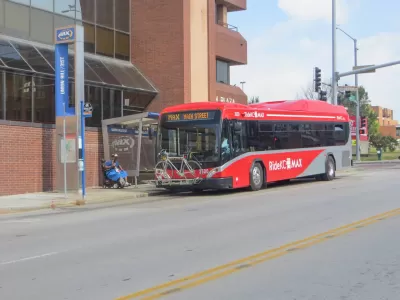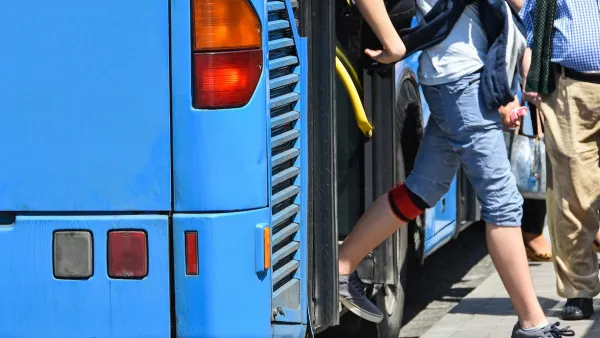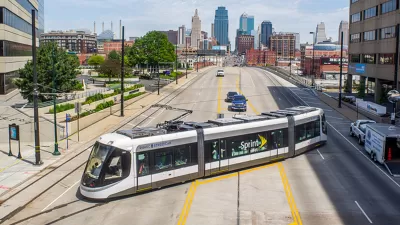Kansas City, Missouri will be the largest U.S. city to operate a fare-free system that officials say will make transit more accessible.

As reported earlier in the month, the city council of Kansas City, Missouri voted to make buses in the city free. Laura Bliss provides follow up coverage to explore the potential of free transit in the city. The plan will cost $9 million annually, but officials say free transit is a worthy investment. "By increasing mobility overall, KC is looking to boost economic activity. And proponents of the plan say that helping marginalized communities move around more easily will translate into deeper benefits," says Bliss.
The plan has skeptics who argue that free fares will not necessarily boost ridership, especially if infrequent service and network gaps are an issue. Bliss also discusses other fare-free transit programs in the U.S. and European cities, where the outcomes have been a mixed bag.
Still, Kansas City is taking the lead in trying out new and innovative transportation options, as it has in the past and even if they were not always successful, Bliss points out. "At a time when public transportation systems face greater competition from ride-hailing services and other tech-enabled tools—and with climate change placing new urgency on shifting travelers out of cars—the City of Fountains has shown an unusual willingness to experiment with new ideas, transit experts say."
FULL STORY: Why Kansas City’s Free Transit Experiment Matters

Planetizen Federal Action Tracker
A weekly monitor of how Trump’s orders and actions are impacting planners and planning in America.

San Francisco's School District Spent $105M To Build Affordable Housing for Teachers — And That's Just the Beginning
SFUSD joins a growing list of school districts using their land holdings to address housing affordability challenges faced by their own employees.

The Tiny, Adorable $7,000 Car Turning Japan Onto EVs
The single seat Mibot charges from a regular plug as quickly as an iPad, and is about half the price of an average EV.

As Trump Phases Out FEMA, Is It Time to Flee the Floodplains?
With less federal funding available for disaster relief efforts, the need to relocate at-risk communities is more urgent than ever.

With Protected Lanes, 460% More People Commute by Bike
For those needing more ammo, more data proving what we already knew is here.

In More Metros Than You’d Think, Suburbs are Now More Expensive Than the City
If you're moving to the burbs to save on square footage, data shows you should think again.
Urban Design for Planners 1: Software Tools
This six-course series explores essential urban design concepts using open source software and equips planners with the tools they need to participate fully in the urban design process.
Planning for Universal Design
Learn the tools for implementing Universal Design in planning regulations.
Smith Gee Studio
City of Charlotte
City of Camden Redevelopment Agency
City of Astoria
Transportation Research & Education Center (TREC) at Portland State University
US High Speed Rail Association
City of Camden Redevelopment Agency
Municipality of Princeton (NJ)





























